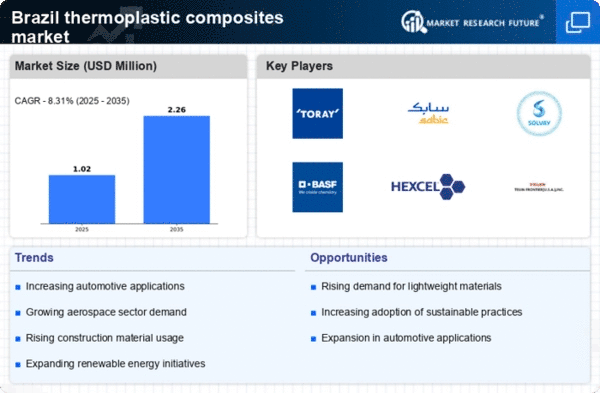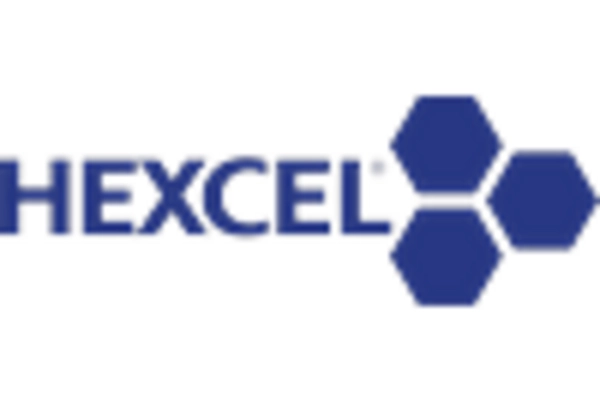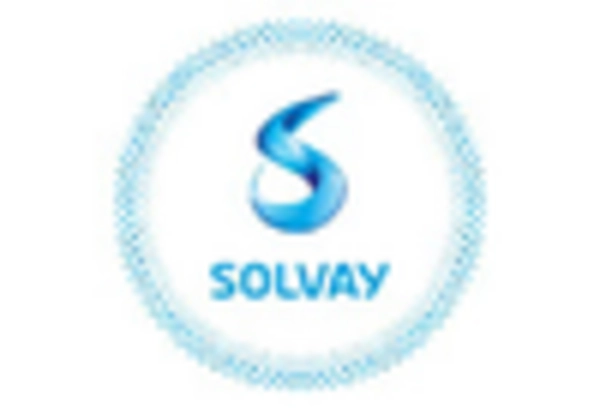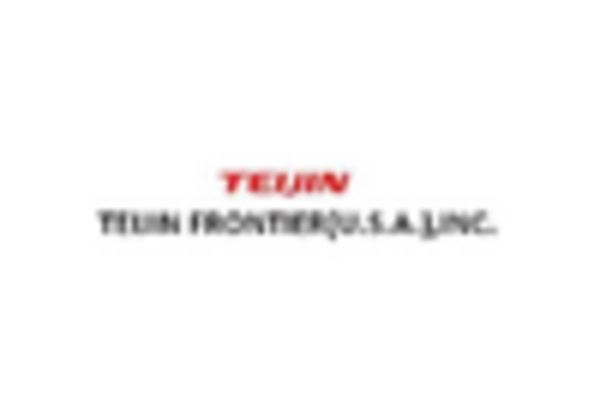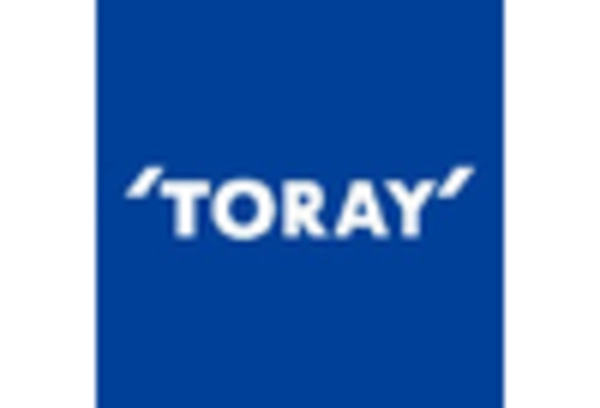The thermoplastic composites market in Brazil is characterized by a dynamic competitive landscape, driven by increasing demand across various sectors such as automotive, aerospace, and construction. Key players are actively pursuing strategies that emphasize innovation, sustainability, and regional expansion. Companies like Toray Industries (Japan) and BASF (Germany) are focusing on enhancing their product portfolios through advanced materials technology, while SABIC (Saudi Arabia) is leveraging its global supply chain to optimize production efficiency. These strategic initiatives collectively contribute to a competitive environment that is increasingly focused on meeting the evolving needs of end-users.In terms of business tactics, localizing manufacturing and optimizing supply chains are pivotal for companies operating in this market. The competitive structure appears moderately fragmented, with several key players vying for market share. This fragmentation allows for a diverse range of products and innovations, yet the influence of major companies remains substantial, as they set benchmarks for quality and performance that smaller firms often strive to meet.
In October Hexcel Corporation (US) announced a strategic partnership with a leading Brazilian aerospace manufacturer to develop advanced thermoplastic composite materials tailored for regional aircraft. This collaboration is expected to enhance Hexcel's market presence in Brazil while addressing the specific needs of local manufacturers, thereby reinforcing its competitive edge in the aerospace sector. The partnership signifies a commitment to innovation and localized solutions, which are crucial in a market that values tailored applications.
In September Solvay (Belgium) unveiled a new line of sustainable thermoplastic composites designed for automotive applications, emphasizing reduced environmental impact without compromising performance. This launch aligns with the growing trend towards sustainability in manufacturing processes and product development. By prioritizing eco-friendly materials, Solvay positions itself as a leader in sustainable innovation, appealing to environmentally conscious consumers and manufacturers alike.
In August Covestro AG (Germany) expanded its production capacity for thermoplastic polyurethanes in Brazil, responding to the rising demand from the automotive and construction sectors. This expansion not only enhances Covestro's ability to meet local demand but also reflects a broader trend of companies investing in regional capabilities to ensure supply chain reliability. Such moves are indicative of a strategic shift towards localized production, which is becoming increasingly important in today's market.
As of November current competitive trends are heavily influenced by digitalization, sustainability, and the integration of AI technologies. Strategic alliances are becoming more prevalent, as companies recognize the value of collaboration in driving innovation and enhancing operational efficiencies. The competitive landscape is likely to evolve from a focus on price-based competition to one that prioritizes technological advancements, product differentiation, and supply chain resilience. This shift underscores the importance of innovation and reliability as key differentiators in the thermoplastic composites market.


